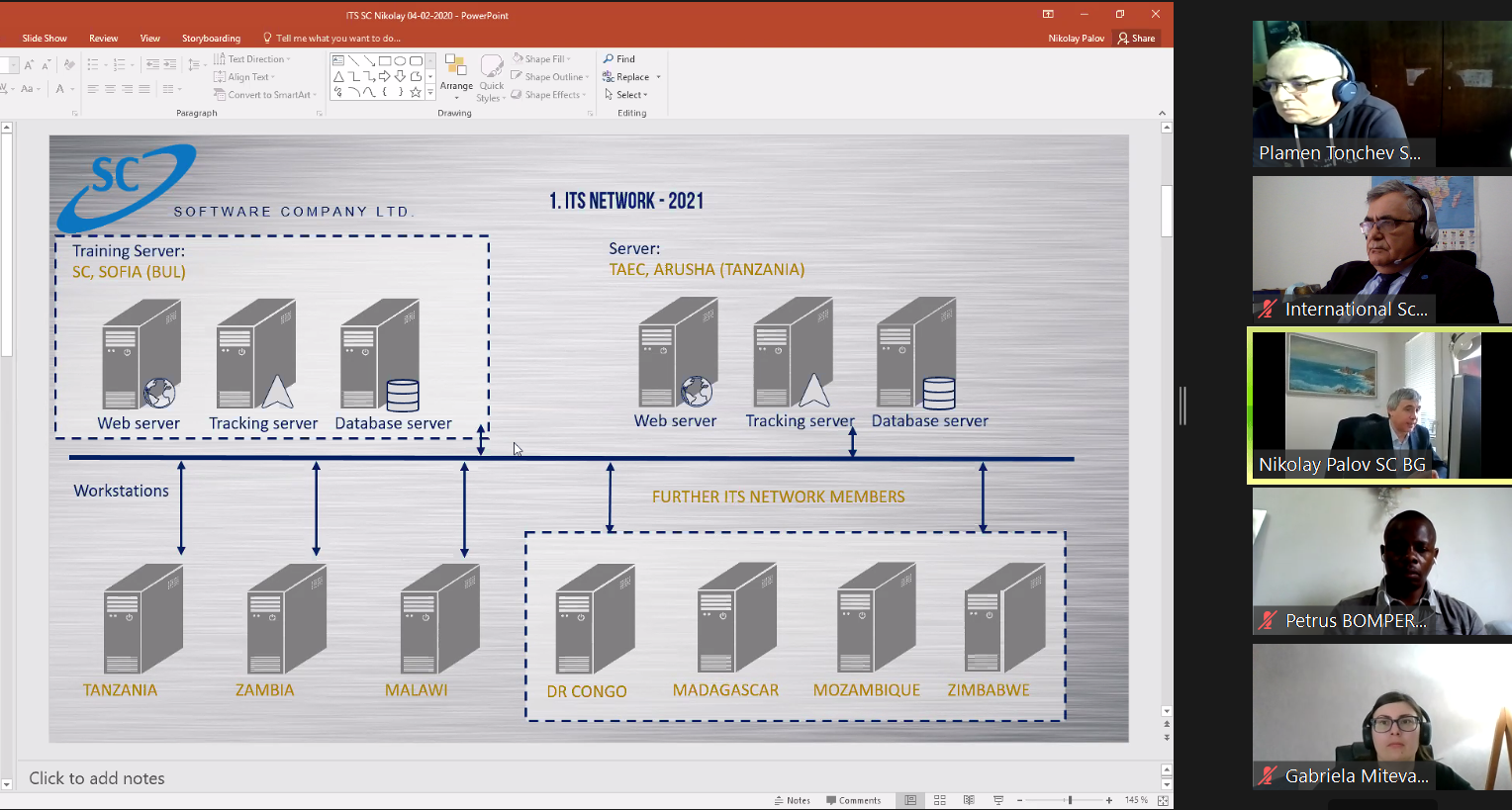More Countries from Southern Africa Joint the Information Tracking System on Uranium Transport

.png) On 4 February 2021, ISTC and Software Company Ltd., the developer of the Information Tracking System (ITS) under EU Project MC 5.01 15B, organized an online working meeting with Project participants from DR Congo, Madagascar, Mozambique, Zimbabwe, and Tanzania to take stock of the ITS expansion and equipment delivery, organization of online trainings, as well as upgrading the ITS data base. The Software Company presented new ITS features, such as: Multi Map Mode, which can add OpenStreetMap to the existent Google maps as a back-up option; and Tracker Map View, which could display all trackers during predefined period - both the ones active in transportation and the ones that are not in active mode.
On 4 February 2021, ISTC and Software Company Ltd., the developer of the Information Tracking System (ITS) under EU Project MC 5.01 15B, organized an online working meeting with Project participants from DR Congo, Madagascar, Mozambique, Zimbabwe, and Tanzania to take stock of the ITS expansion and equipment delivery, organization of online trainings, as well as upgrading the ITS data base. The Software Company presented new ITS features, such as: Multi Map Mode, which can add OpenStreetMap to the existent Google maps as a back-up option; and Tracker Map View, which could display all trackers during predefined period - both the ones active in transportation and the ones that are not in active mode.
The IT system equipment has successfully reached the destinations. In February and March preliminary and regular trainings will take place online. The preliminary trainings will involve one or two IT specialists per country who will set up the network and prepare the course of action for the larger groups of trainees. Courses for participants from DRC and Madagascar will be held in French, while the User-Guide will be released in English, French and Portuguese.
The installation and spread of the Information Tracking System multiplied the interest towards its application. In addition to the new participating countries – DRC, Madagascar, Mozambique, and Zimbabwe, the countries that already had courses for their national regulators on an earlier stage, requested to receive additional training for experts from transport operators, customs services, etc.
In a parallel move, additional SADC member states opted to have country specific reports that contain recommendations for the improvement of their nuclear safety and security.
Under Project MC 5.01 15B, the tool for national monitoring and regional exchange of information about the transportation of Uranium Ore Concentrate and radioactive materials is the web-based Information Tracking System. The country-specific reports are conceived to survey in each country in focus the national legal and regulatory frameworks that tackle nuclear safety and safeguards; the institutional infrastructures and stakeholders; the decision-making processes and policies, including preparedness to respond to nuclear threats and crises; the degree of compliance with international norms, standards, and best practices. The ITS and the country-specific reports are the main products of the EU-funded, ISTC-implemented Project MC 5.01 15B Support to Southern African States in Nuclear Safety and Safeguards.

